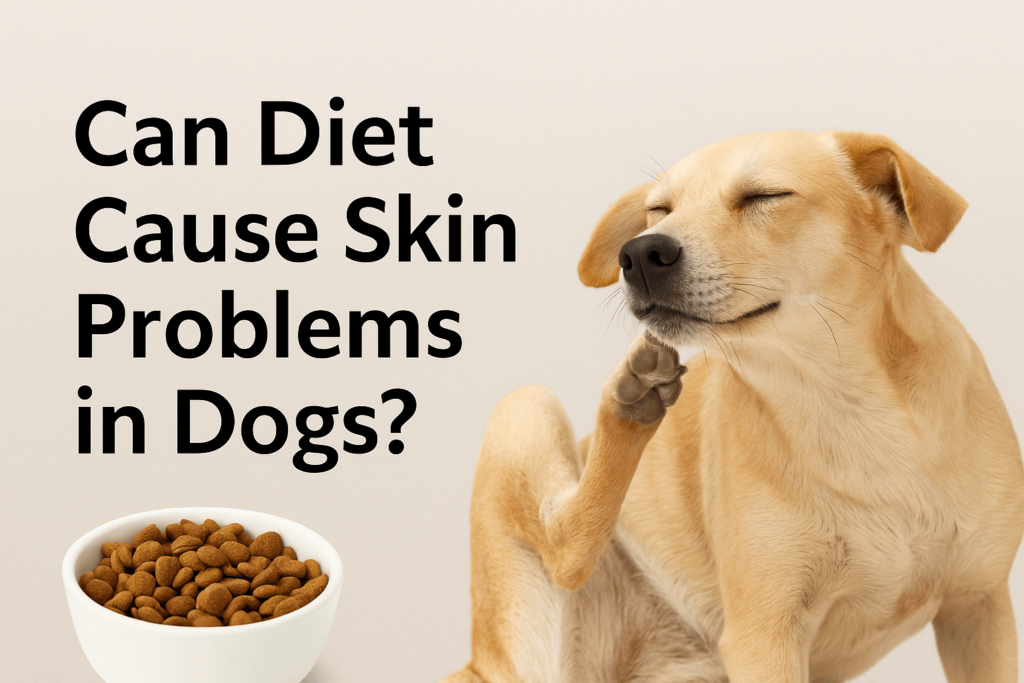As a loving dog owner, it’s heartbreaking to see your furry friend constantly scratching, biting, or licking their skin. While many people first suspect fleas or allergies, an often overlooked cause is your dog’s diet. Yes, dog skin problems from food are a real and common issue that can significantly affect your dog’s comfort and health.
In this article, we’ll explore how what your dog eats might be contributing to their skin problems, signs to watch for, and what you can do to help.
If you want to learn more about other causes of dog skin problems and how to treat them naturally, check out our complete guide to dog skin problems.
What Are Dog Skin Problems from Food?
Just like humans, dogs can develop allergies or sensitivities to certain foods. These reactions can cause inflammation and irritation on the skin, leading to symptoms like:
- Persistent itching and scratching
- Red, inflamed, or dry patches
- Hair thinning or hair loss
- Hotspots and flaky skin
Common triggers include proteins like beef, chicken, dairy, eggs, or even grains like wheat and corn. When a dog’s immune system mistakenly identifies a food protein as harmful, it can cause an allergic reaction that shows up on the skin.
How Can You Tell If Your Dog Has Food-Related Skin Problems?
Identifying dog skin problems from food isn’t always easy because the symptoms can look similar to other causes like environmental allergies or parasites. However, some clues include:
- Itching that doesn’t improve with flea treatment
- Repeated ear infections or inflamed ears
- Itchy paws or face more than other areas
- Symptoms that persist or worsen over time
If you notice these signs, it’s a good idea to talk to your vet about the possibility of food allergies.
What Should You Do If You Suspect Food Is the Cause?
The most effective way to diagnose and manage dog skin problems from food is through a food elimination trial. This means feeding your dog a special diet with limited ingredients — usually a novel protein and carbohydrate your dog hasn’t eaten before — for 8 to 12 weeks.
During this time, you watch for any improvements in their skin condition. If the itching and irritation decrease, your vet may gradually reintroduce certain foods to identify the specific allergen.
Food allergies in dogs can cause itchy skin and discomfort. Learn more about common dog food allergies from the American Kennel Club.
Tips to Support Your Dog’s Skin Health Through Diet
Beyond elimination diets, there are ways you can support your dog’s skin health through better nutrition:
- Choose high-quality dog foods with natural ingredients
- Look for formulas rich in omega-3 and omega-6 fatty acids
- Avoid artificial additives, fillers, and preservatives
- Add supplements like fish oil or flaxseed oil (after consulting your vet)
Final Thoughts
If your dog is suffering from persistent itching or skin issues, don’t overlook the possibility of dog skin problems from food. While it can take some detective work and patience, adjusting your dog’s diet could make a world of difference in their comfort and happiness.
Always consult your veterinarian before making any major changes to your dog’s diet or starting new treatments — they can guide you to the best plan for your furry friend.


